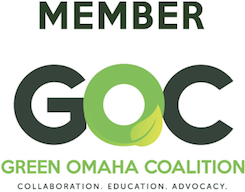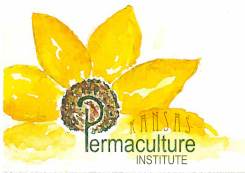Opening panel of the North American Permaculture Convergence, August 29, 2014
Penny Livingston-Stark, moderator
Scott Pittman, PRI USA and founder of Permaculture Credit Union: Bill Mollison took to the road teaching permaculture while Holmgren stayed put and did research. Mollison's first visit to the US was 1980-81. Pittman took every opportunity to learn from Mollison before his retirement. Mollison ended all classes by telling students they could now go teach and design, but this was not always a good idea and may be his biggest mistake.
Peter Bane, editor of Permaculture Activist magazine: took PDC in 1990, transformed by Mollison's class in Nepal, helping bring a traditional culture cope with technology and modern culture.
Albert Bates, the Farm: received a Right Livelihood award with Mollison in 1990, came to permaculture through intentional community, formed Ecovillage Network of North America and started Ecovillage Training Center at the Farm. Global Ecovillage Network followed, all founders were permaculturalists. Now trying to focus on the climate-changing large scale rather than the village scale, trying to sequester carbon on a human timescale.
Jude Hobbs, Lost Valley Education Center, Oregon: came to permaculture from edible landscaping, went to Orcas Island to study with Bullock Bros. Took teacher training and realized need for less jargon, more women. Now women outnumber men at most permaculture events. Need to speak at Rotary clubs and Grange organizations.
Livingston-Stark: Holmgren was a student of Mollison's and had nine majors at the time, asked Mollison why all the departments weren't talking to each other. Permaculture One was Holmgren's masters thesis. While Mollison toured, Holmgren proved the concepts worked in practice. Shout out to Michael ("Skeeter") Pilarski and other elders for keeping permaculture going while everyone thought we were nuts.
Pandora, Transition US: honor ancestors and those who helped us get here. Future of permaculture depends on seeing the path forward. Permaculture movement is a microcosm of larger society; need to see the larger patterns that shaped who we are if we want to change directions. The way permaculture is taught is not always relevant to students. How does PC relate to race relations in Ferguson MO, for example?
Gerardo, Monterrey Mexico: was a Web developer in 2007 when he discovered PC. Went to university as a forestry engineer. Attended PDC with Mollison & Geoff Lawton in Australia. Started permaculture.org.mx and began teaching. Unveiled Permacultura México logo featuring Quetzalcoátl.
Gillian, Canada: first heard of PC on the CBC in 1994. Took a PDC on PEI in 1996 and toured the Ark (off-grid house). Book learning will only get you so far. Taught a number of courses in Europe that went "deep" into personal and collective-body healing. PC council for Europe just had the 12th biennial convergence. PC teachers' council is funded by the EU: http://permateachers.eu(link is external) . Lots going on in Europe and lots of exciting opportunities.
Hobbs again: Right livelihood and PC ethics. Design is a spiral; focus naturally shifts to different sectors of our lives and environments.
Bates again: We are about to reach an inflection point which will render PC obsolete. Read opinion piece: "The Climate Swerve" comparing shift in public thinking about ethics of climate change to that re warfare. In the future all landscape design must be PC, all architecture, etc. Leave behind "stranded ethics" of the 21st century based on growth at all costs. PC will become invisible and taken for granted.
Pittman again: "Invisible structures" section of PDC gets short shrift. Mollison said visible structures tell us what to do; invisible structures tell us how to do it. If we leave that out, we can't see how to move forward. Not interested in mainstreaming the movement; need to find our place and teach from that place. Return to heart-felt knowledge. [ovation]
Livingston-Stark again: just got go-ahead to start a council on natural building codes. We have job security because our work has value. Natural pattern is abundance, and that's what we're focusing on.
- Inicie sesión para enviar comentarios





Comentarios